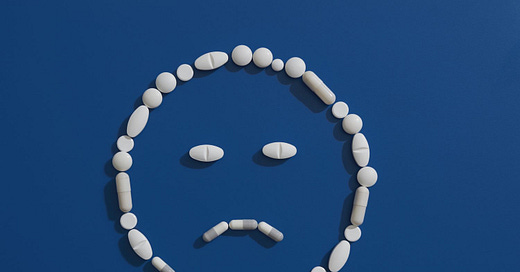Debunking the debunkers on the "myths" of antidepressants
By Maryanne Demasi, PhD and Peter C Gøtzsche, DrMedSci MD
Recently, The Conversation ran an article which claimed to “debunk” a range of myths about antidepressants such as selective serotonin reuptake inhibitors (SSRIs).
Natalina Salmaso, a clinical psychologist at Carleton University in Canada, highlighted five common myths that make people hesitant to take antidepressants.
Salmaso said hesitancy is often “unfounded” and “may not be grounded in science” and that “debunking the myths surrounding antidepressants is critical to permitting educated treatment decisions for those who suffer.”
However, Salmaso’s article was full of omissions and falsehoods, so we decided to debunk the debunker.





